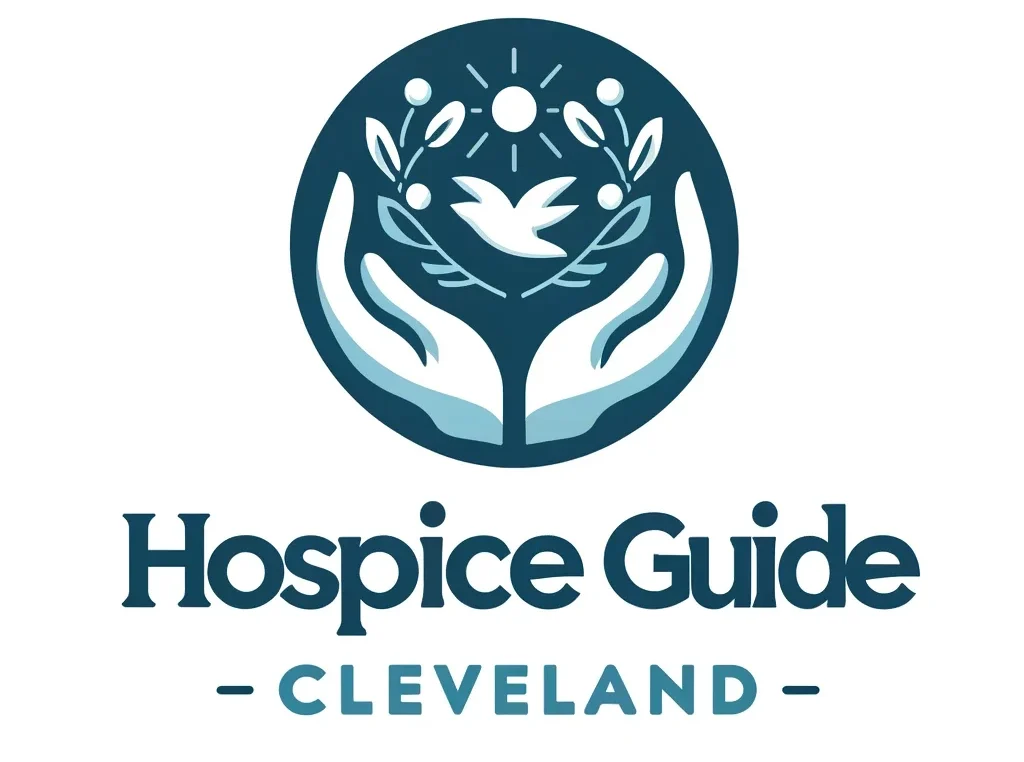Hospice care in Cleveland, Ohio, provides a compassionate approach to end-of-life care for patients and their families.
This specialized care focuses on comfort rather than curative treatment, emphasizing the patient’s quality of life during their final stages.
Hospices in Cleveland offer a team-oriented approach involving expert medical care, pain management, and emotional and spiritual support tailored to the patient’s needs and preferences.

The hospice services in Cleveland cater to a diverse community with respect for different cultures and backgrounds.
They support patients in various settings, such as the patient’s home, hospice centers, hospitals, or long-term care facilities, ensuring that individuals have access to care in a comfortable and familiar environment.
With a goal to honor the wishes of patients and provide support to their families, hospice care professionals in Cleveland are certified and trained in palliative care.
This ensures that every patient receives comprehensive, patient-centered care that upholds dignity, eases suffering, and contributes to a peaceful end-of-life experience.
Overview of Hospice Services in Cleveland, Ohio

In Cleveland, Ohio, hospice services provide compassionate end-of-life care, integrating medical expertise with a deep understanding of the emotional and spiritual needs of patients and their families.
Types of Hospice Care Available
Home-Based Care: Many hospices in Cleveland offer services in the patient’s home, allowing for comfort and familiarity during end-of-life care.
This type of care includes regular visits by hospice nurses, aides, and other necessary healthcare professionals.
Inpatient Facilities: For patients with symptoms that cannot be managed at home, several hospices in Cleveland have dedicated inpatient facilities.
These provide 24-hour care in a controlled environment.
Respite Care: Recognizing the strain on caregivers, hospice services in Cleveland also offer respite care—short-term relief for primary caregivers, with the patient temporarily cared for in a hospice facility or other approved location.
Understanding the Hospice Care Philosophy
The hospice philosophy centers around providing palliative care, prioritizing comfort and quality of life over curative treatment.
Care teams comprising doctors, nurses, social workers, and spiritual advisors collaborate to support not only the patient but also their family and friends.
Choosing the Right Hospice in Cleveland
When selecting a hospice program, consider key factors:
- Accreditation: Look for facilities accredited by organizations like The Joint Commission or the Community Health Accreditation Program (CHAP).
- Insurance Acceptance: Confirm that the hospice accepts the patient’s insurance, including Medicare, Medicaid, or private insurance plans.
- Services Offered: Align the patient’s needs with the specialized programs and services the hospice provides, such as veteran programs or those addressing specific diseases.
Operational Aspects of Cleveland’s Hospice Care

Cleveland’s hospice care providers adhere to rigorous standards to ensure high-quality, compassionate care for patients facing life-limiting illnesses.
Licensing and Regulation Compliance
Hospice care services in Cleveland operate under firm state and federal regulations.
They must obtain a license from the Ohio Department of Health, demonstrating compliance with all applicable laws and guidelines. Regular inspections ensure hospice providers meet quality and safety standards.
Facility Licensure:
- Ohio Department of Health Certification
- Medicare/Medicaid Acceptance (if applicable)
Inspections:
- Annual State Inspection
- Unannounced Surveys
- Corrective Actions for Deficiencies
Staff Qualifications and Training
Providers invest in their staff’s professional development to manage the complex needs of hospice patients.
Every member undergoes thorough training and continuous education.
Key Staff Requirements:
- Medical Director: Board-certified physician in hospice and palliative medicine.
- Nurses: Registered nurses with state credentials and hospice-specific training.
- Social Workers: Licensed professionals with degrees in social work and training in end-of-life care dynamics.
Training Programs:
- Ongoing Continuing Education
- Best Practices in Palliative Care
- Cultural Competency & Ethics Workshops
Palliative Care Facilities and Resources
Cleveland’s hospice programs offer a variety of settings, from home care to specialized inpatient units, equipped with the necessary medical equipment and comforts to manage patient symptoms and provide support.
Care Settings:
- In-Home Services
- Inpatient Hospice Units
- Long-Term Care Facilities
Resources:
- Specialized Medical Equipment
- Pain Management Pharmaceuticals
- Counseling and Grief Support Services
Frequently Asked Questions

When considering hospice care in Cleveland, Ohio, key points include understanding eligibility, identifying top facilities, distinguishing between palliative and hospice care, and becoming familiar with costs and specific services offered by local providers.
What are the qualifications for receiving hospice care in Ohio?
Eligibility for hospice care in Ohio requires a diagnosis of a terminal illness, with a life expectancy of six months or less if the disease follows its natural course. A physician’s certification is also necessary to begin care.
Which hospice facilities are considered the best in Cleveland, Ohio?
The Hospice of the Western Reserve and Cleveland Clinic are highly regarded in Cleveland. Rankings may vary by source, but these facilities are commended for their care quality and comprehensive services.
Are there any differences between palliative care and hospice provided by the Cleveland Clinic?
Cleveland Clinic offers both palliative care and hospice.
Palliative care can begin at diagnosis, providing relief from the symptoms and stress of serious illness, while hospice is specific to end-of-life care.
Is there any cost associated with hospice care services in Ohio?
Hospice care can be covered by Medicare, Medicaid, most private insurance plans, HMOs, and other managed care organizations.
Patients may also be responsible for some co-pays or deductibles, depending on their insurance coverage.
Could you explain the various types of care provided by hospices in Cleveland, Ohio?
Hospices in Cleveland provide routine home care, continuous care at home for crises, general inpatient care for pain control and symptom management, and respite care to give families a break from caregiving.
What specific services does Hospice of the Western Reserve offer in the Euclid area?
Hospice of the Western Reserve in the Euclid area offers a range of services, including skilled nursing care, and pain management.
They also provide grief support, spiritual counseling, and volunteer services.
